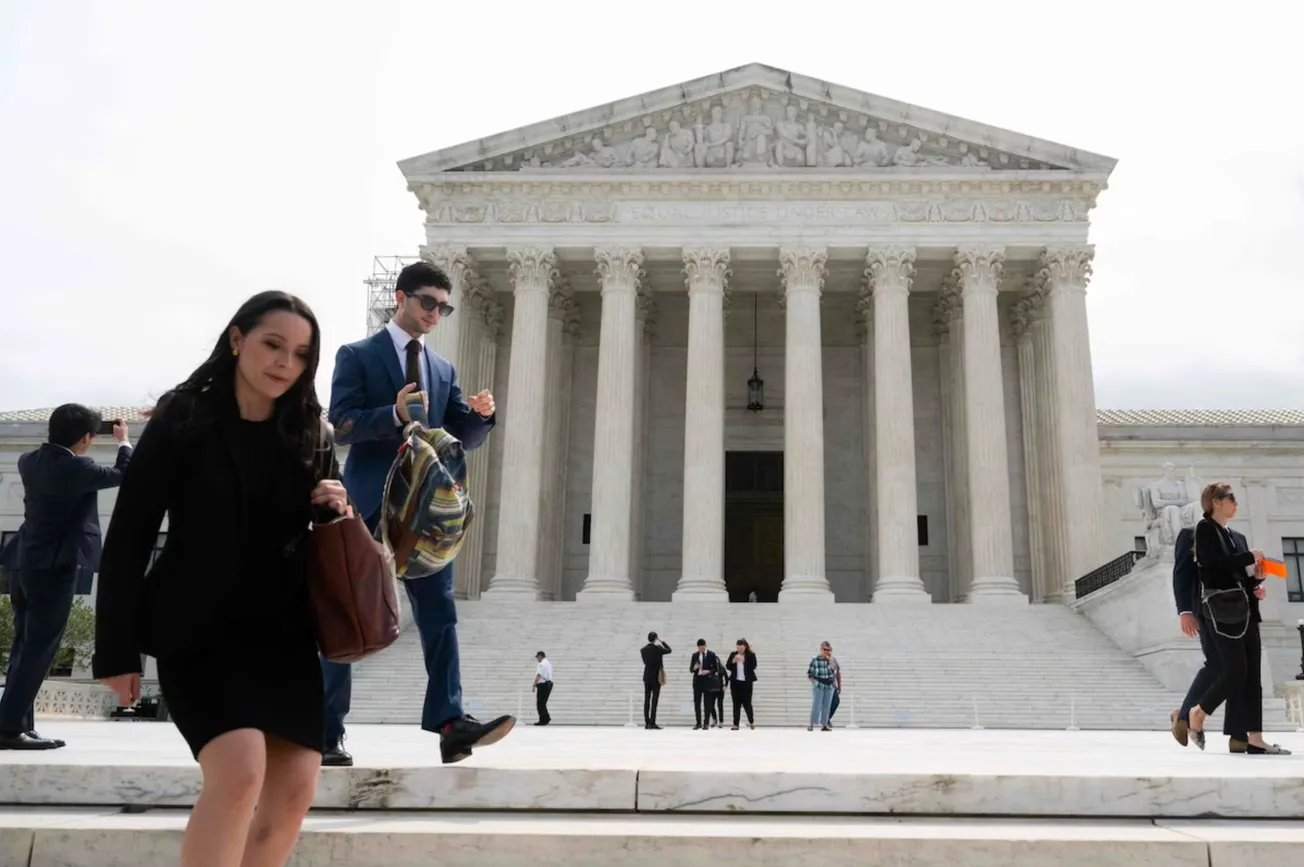Table of Contents
In the final two days of its 2023 term, the Supreme Court handed down three blockbuster rulings concerning three salient political issues: college affirmative action, religious liberty, and federal student loan forgiveness. While the practical implications of these decisions will be highly consequential, a far more important matter was at stake last week. In effect, the Court decided whether to faithfully apply and uphold several of the U.S. Constitution’s integral provisions.
To great relief, the originalist majority affirmed that government is bound by unbending constraints set forth in America’s founding document. The only unwelcome outcome was a united minority—defined by a judicial philosophy which views the Constitution as Play-Doh—standing vehemently in support of a government limited only by its own imagination. The result was a trifecta of 6–3 decisions, each more imperative than the last.
In the case of Students for Fair Admissions v. Harvard, the Justices determined that selective universities which consider race in admissions violate the Equal Protection Clause of the Fourteenth Amendment. According to Chief Justice Roberts' majority opinion, "Proponents of the Equal Protection Clause described its ‘foundation[al] principle’ as ‘not permit[ing] any distinctions of law based on race or color.’ Any ‘law which operates upon one man,’ they maintained, should ‘operate equally upon all.’”
Back in 2007, Justice Roberts delivered a quintessential proclamation on race-based preferences: “The way to stop discrimination on the basis of race is to stop discriminating on the basis of race.” Here, he provides another: “Eliminating racial discrimination means eliminating all of it.” Because the Fourteenth Amendment is colorblind in its language, the “guarantee of equal protection cannot mean one thing when applied to one individual and something else when applied to a person of another color.” If Harvard could not lawfully favor Asians and whites over black and Hispanic applicants, the reverse must be true as well.
The following day, the First Amendment prevailed over state coercion. In 303 Creative v. Elenis, Christian web designer Lorie Smith violated Colorado’s anti-discrimination law when she refused to create websites promoting same-sex weddings. Reminiscent of the Masterpiece Cakeshop case sparked by the same law, the Court once again recognized that government cannot compel individuals to produce creative expressions with which they deeply disagree. Unfortunately for would-be speech police, “The framers designed the Free Speech Clause of the First Amendment to protect the ‘freedom to think as you will and to speak as you think.’”
In her dissenting opinion, Justice Sotomayor insisted that “The legal duty of a business open to the public to serve the public without unjust discrimination is deeply rooted in our history.” She may be correct when speaking of hotels and restaurants, but websites are distinctly creative products subject to First Amendment protection. The full application of her logic, Justice Gorsuch writes, “would allow the government to force all manner of artists, speechwriters, and others whose services involve speech to speak what they do not believe on pain of penalty.” Under such a regime, the expression of ideas antithetical to one’s faith could be made obligatory.
Lastly, but perhaps most importantly, the originalist majority defended Article I of the Constitution against one of the most brazen attacks ever waged by a sitting executive. After calling on Congress to “forgive” $10,000 of federal student loans per borrower and failing to win its approval, President Biden simply issued an executive order to do so himself. Without a single vote on the matter, he attempted to steal $430 billion of taxpayer money from the U.S. Treasury.
Biden absurdly predicated his directive on the obscure HEROES Act—passed in the wake of 9/11 to provide narrow loan relief for service members. Contrary to the genuine beliefs of no one, the Court held that the HEROES Act does not permit the Education Secretary to cancel debt on a broad scale. Even former Speaker Nancy Pelosi—a staunch Biden ally—understands this reality. As she bluntly explained in 2021, “People think that the President of the United States has the power for debt forgiveness. He does not. He can postpone. He can delay. But he does not have that power. That has to be an act of Congress.”
Indeed it does. Pursuant to Article I, the legislative branch retains the exclusive authority to raise, borrow, and appropriate money. There exists no addendum allowing the president to seize this power should Congress fail to do what he wishes.
Less than forty-eight hours before the final decision was issued, New York Yankees pitcher Domingo Germán threw the twenty-fourth perfect game in Major League Baseball history: nine innings, twenty-seven consecutive outs, with no opposing batter reaching first base. That alone is an extraordinary feat. Yet somehow, the Supreme Court has simultaneously achieved something just as miraculous: a perfect week.
Without fail, every threat to the constitutional order reviewed by the Justices was firmly refuted and reversed—whether it be longstanding racial discrimination, government-mandated speech, or unprecedented executive overreach. In other words, the Court did its job as outlined by Alexander Hamilton, “to declare all acts contrary to the manifest tenor of the Constitution void.” God forbid, were it to abandon this duty, “all the reservations of particular rights or privileges would amount to nothing.”









